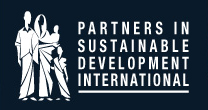HOW MUCH MONEY DOES IT TAKE TO START A BUSINESS?
How much money does a person need to start a business? Do you even have to have money to start a business? You'll be astonished to the answers to those questions. Your total mindset will be changed if you know about the rural female entrepreneurs of Bangladesh. They became an entrepreneur because they didn't have money. They were extremely poor.
The number of men and women in Bangladesh is about equal. Around 84 percent of people live in rural areas. Other than a few significant cities like Dhaka and Chittagong, Bangladesh is almost entirely an agricultural country. Rural people are mostly engaged in agricultural work. Usually, men work in the field, and women do household work. However, nowadays, many rural poor women are trying to become entrepreneurs. Despite barriers - such as cultural barriers, social obstacles, religious barriers, and financial obstructions - they are forced to go outside of their homes to operate their business, mainly because of their family needs.
In Bangladesh, rural women entrepreneurs utilized a tremendous number of microloans. In the traditional banking sector, females had to pay higher interest rates and have collateral. So, the traditional bank could not reach the poorest and most rural women. They want collateral for granting a loan, which is not possible for a poor woman to provide. They are so underprivileged that they do not have any assets to put in a bank as collateral. Microfinancing from the Grameen Bank and others has had an enormous impact on poor, rural, female entrepreneurs in Bangladesh. These rural poor women could resolve some of their obstacles through microfinancing, such as lack of self-confidence, lack of information and contact, lack of social acceptance, and business support access.
If we consider the amount of capital required to start a business, surprisingly, half of those women entrepreneurs have started their business with fifty dollars or less. One entrepreneur in a study I conducted in 2019 has taken Taka 500, which is less than $7 ($1 = around Taka 80) in Bangladesh, in 1999 to start her business. Now her yearly loan amount is $1,875 (Taka 150,000), which in comparison to other countries, is also a very minimal amount of capital to operate a business.
With this small amount of money, the women launched their businesses and worked hard to make them successful. They have lots of enthusiasm and determination. Their entrepreneurial skills are noticeable. Gradually they have started applying for increasing amounts of money from the bank. Now, four of the entrepreneurs I interviewed have financed more than six thousand dollars.
One entrepreneur of Cumilla has received eight thousand seven hundred dollars now, which is large compared to others. She started her business with only $ 25 in the year 2000.
She said, "I took only a $25 loan to start a tea stall. Then we started the business of wholesale rice. We bought four warehouses and rented two of them. Then we endeavored to wholesale vegetables and bananas, and this is now our family business."
She is pleased with her business. Her family and friends are indeed proud of her. Now she can manage a considerable amount of money every day. She keeps track of carrier trucks, fruits, vegetables, and money.
One woman entrepreneur started her vegetable business with just $38 in the year 1999. Within 20 years, she expanded her business and constructed a brickfield. With the help of a microloan, she could manage to make her own home. Another entrepreneur has taken a $375 short-term latrine loan. With this loan, she installed latrines for her tenants. In the rural area of Bangladesh, there is a limited number of toilets. A proper sanitation and waste removal system is not standard, so having this in place for the rentals is a luxury. It is customary for a couple of rooms to share one toilet.
The above study proves that those rural and poor women are now great and useful leaders in the business arena. Microfinancing has been depicted as a crucial factor in the entrepreneurial success of females in Bangladesh. It seemed that even in an extreme situation, women are up to the challenge, and work with or without any experience very successfully. They are very motivated to change the standard of their living for their family.
PSDI has just launched a campaign to help empower 300 more women in rural Bangladesh through our economic empowerment programs. Won’t you join us? Just click here to make a significant difference in the life of a family. Thank you.
